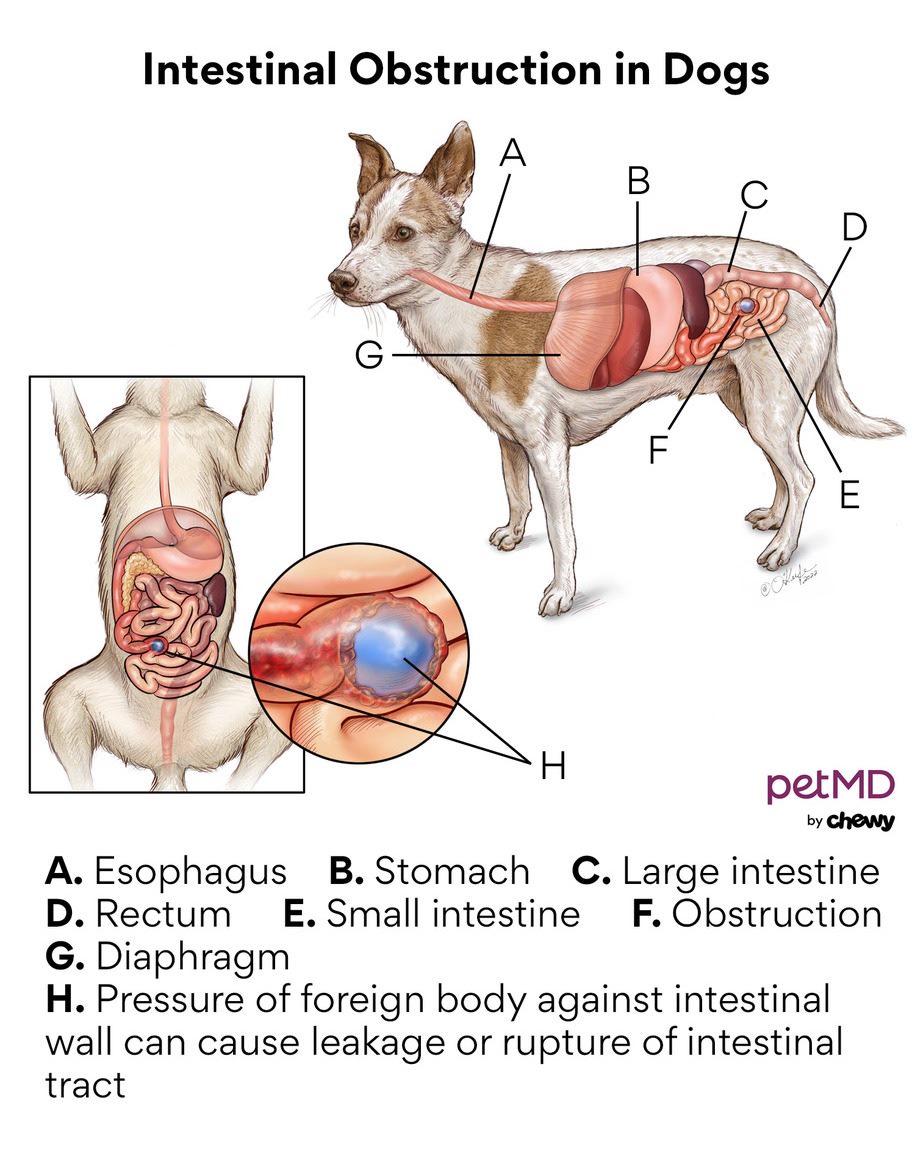A dog’s digestion process typically takes around 4 to 6 hours on average. During this time, food travels through their stomach and intestines, where it is broken down and nutrients are absorbed into the body.
Dogs are known for their love of food, often gobbling it up with lightning speed. But have you ever wondered how long it takes for a dog’s digestive system to process that meal? Understanding the time it takes for food to move through a dog’s digestive tract is important for ensuring their overall health and well-being.
From the moment they take their first bite, a series of intricate processes occur within their body, working together to break down the food and extract vital nutrients. We will explore the different stages of a dog’s digestion process and learn how long it generally takes for them to fully digest their meals. So, let’s dive right in and uncover the fascinating journey that takes place inside your furry friend’s tummy!
Factors Affecting Dog Digestion
Understanding the factors that affect a dog’s digestion can help pet owners ensure their furry friends stay healthy and happy. From a dog’s age and breed to the type of food they consume and their overall health condition, these factors play a crucial role in determining how long it takes for a dog to digest.
Dog’s Age And Breed
Both a dog’s age and breed can influence their digestive process. Puppies and senior dogs may have slower digestion compared to adult dogs due to their developing or aging digestive systems. Similarly, the breed of a dog can also impact digestion. Certain breeds, such as Bulldogs or Boxers, may experience issues with digestion due to their shorter snouts.
Type Of Food
The type of food a dog consumes plays a significant role in their digestion. Dogs fed with high-quality, easily digestible dog food tend to have a faster digestion process. These foods are formulated to provide the necessary nutrients while minimizing digestive issues. On the other hand, low-quality or inappropriate food choices can result in longer digestion times and potential digestive discomfort.
Dog’s Health Condition
A dog’s overall health condition can also affect their digestion. Dogs with underlying health issues such as gastrointestinal disorders, food allergies, or certain diseases may experience slower digestion. It is important for pet owners to monitor their dog’s health and seek veterinary advice if they notice any digestion-related problems.

Credit: vetericyn.com
Digestion Process In Dogs
Dogs have a fascinating digestion process that allows them to break down and absorb nutrients from their food. Understanding how long it takes for a dog to digest can provide valuable insights into their overall health and well-being. In this article, we will explore the different stages of digestion in dogs and their estimated timeframes.
Mouth And Teeth
The digestion process in dogs starts as soon as they take the first bite of food. Their mouth and teeth play a crucial role in breaking down food into smaller pieces, increasing its surface area and making it easier to digest. Dogs have sharp teeth that are designed to tear and chew their food effectively. This initial step is essential in enabling the dog’s digestive system to process the nutrients efficiently.
Stomach
Once the food is chewed and swallowed, it enters the dog’s stomach, where further digestion occurs. The stomach secretes gastric juices, including stomach acid and enzymes, which break down proteins and aid in the digestion process. The stomach’s muscular walls contract, mixing the food with these digestive juices to create a semi-liquid substance called chyme. This chyme then gradually moves into the small intestine for further processing.
Small Intestine
The small intestine is where most of the nutrient absorption takes place. It is a long, coiled tube that consists of three parts: the duodenum, jejunum, and ileum. As the chyme enters the small intestine, it encounters various digestive enzymes and bile produced by the liver and stored in the gallbladder. These enzymes break down carbohydrates, fats, and proteins into smaller molecules that can be easily absorbed into the bloodstream. The inner lining of the small intestine contains tiny finger-like projections called villi, which provide a large surface area for nutrient absorption.
Large Intestine
After the small intestine extracts most of the nutrients from the chyme, the remaining waste material passes into the large intestine, also known as the colon. The large intestine’s main function is to absorb water and electrolytes from the waste, resulting in the solidification of stools. This is where the final stages of digestion occur, and the feces are formed through the compaction of waste. The feces are then stored in the rectum until the dog is ready to eliminate them.
Overall, the digestion process in dogs is a complex and highly efficient system that ensures proper nutrient absorption and waste elimination. While the exact time taken for digestion can vary depending on factors such as the size of the dog and type of food consumed, the entire process generally takes approximately 8 to 10 hours.
Variations In Digestion Time
A dog’s digestion time can vary depending on factors such as size, age, and diet. Generally, it can take anywhere from 4 to 8 hours for a dog to fully digest its food. Understanding these variations is essential for maintaining a healthy diet for your furry friend.
Differences Between Dog Breeds
When it comes to digestion time, different dog breeds can exhibit variations. This is primarily due to differences in their size, metabolism, and genetics.
Smaller breeds, such as Chihuahuas and Yorkshire Terriers, tend to have faster digestion times compared to larger breeds like Great Danes and Saint Bernards. This can be attributed to the fact that smaller dogs have smaller stomachs and shorter digestive systems.
Larger breeds, on the other hand, have larger stomachs and longer digestive tracts, resulting in slower digestion. Consequently, it may take more time for food to pass through the system and be fully digested.
Impact Of Food Types
Not only does the breed of a dog influence digestion time, but the type of food they consume also plays a crucial role.
High-quality dog foods that contain easily digestible ingredients can be processed more efficiently by a dog’s digestive system. These foods typically contain a balanced ratio of proteins, carbohydrates, and fats that are easy for the body to break down and absorb.
On the other hand, low-quality or highly processed foods that are rich in fillers and artificial additives can take longer to digest. These types of foods can be harder for a dog’s digestive system to break down, leading to a slower digestion process.
Effects Of Individual Dog Factors
Aside from breed and food type, individual factors specific to each dog can also affect digestion time.
Age is one such factor. Puppies have faster metabolism and tend to digest food more quickly than adult dogs. Similarly, older dogs may have slower digestion due to a decrease in metabolic rate.
Health conditions, such as gastrointestinal disorders or allergies, can significantly impact digestion time. Dogs with these conditions may experience delays in the digestion process and may require specific diets to aid their digestion.
Additionally, a dog’s activity level can influence digestion time. Dogs that are more active tend to have faster digestion as physical exercise can help stimulate the digestive system.
Signs Of Healthy Digestion In Dogs
As responsible pet owners, it’s crucial for us to pay attention to our furry friends’ digestive health. Dogs, like humans, can experience digestive issues that can impact their overall well-being. By understanding the signs of healthy digestion in dogs, we can ensure that our pets are happy and comfortable. This article will highlight three key indicators to look out for: regular bowel movements, a normal appetite and weight, and no signs of discomfort.
Regular Bowel Movements
When it comes to a dog’s digestion, regular bowel movements are a clear sign of a healthy digestive system. Dogs should typically have at least one bowel movement per day. Monitoring your dog’s bowel movements is essential as it can reveal potential digestive issues or underlying health problems. If your dog is consistently having irregular or infrequent bowel movements, it may be time to consult with your veterinarian.
Normal Appetite And Weight
A healthy digestive system goes hand in hand with a normal appetite and weight in dogs. Just like us, dogs should have a consistent appetite, showing interest in their food and finishing their meals. Sudden changes in appetite, such as excessive hunger or loss of appetite, may signal an underlying digestive problem. Additionally, it’s important to keep an eye on your dog’s weight. Maintaining a stable weight is an indicator that their digestive system is functioning properly.
No Signs Of Discomfort
Dogs with healthy digestion should show no signs of discomfort. If your dog is experiencing frequent bloating, excessive gas, or vomiting, it could be an indication of an upset digestive system. Similarly, diarrhea or constipation should not be ignored. While occasional digestive issues can occur, consistent discomfort warrants a trip to the veterinarian for a thorough examination.
Common Digestive Issues In Dogs
Dog digestion time varies depending on factors such as the type of food and size of the dog, but generally it takes around 8-10 hours for a dog to digest food.
Dogs, like humans, can experience various digestive issues that can cause discomfort and distress. These issues can range from mild stomach upset to more serious conditions such as diarrhea and vomiting. Understanding these common digestive problems can help you recognize the signs and provide the necessary care for your furry friend.
Diarrhea
Diarrhea is a common digestive issue in dogs that can be caused by a variety of factors, including dietary changes, gastrointestinal infections, food allergies, or even stress. It is characterized by loose, watery stool and frequent bowel movements. If your dog is experiencing diarrhea, it is important to monitor their hydration levels and provide them with plenty of fresh water. Additionally, feeding them a bland diet consisting of boiled chicken and rice can help soothe their upset stomach. Consult your veterinarian if the diarrhea persists or if your dog shows other concerning symptoms.
Vomiting
Vomiting is another common digestive problem in dogs that can occur due to a variety of reasons, such as eating something indigestible, dietary indiscretion, or underlying health issues. It is important to note that occasional vomiting can be normal for dogs, especially if they have eaten too quickly or ingested something they shouldn’t have. However, persistent or recurrent vomiting can indicate a more serious issue and should be evaluated by a veterinarian. In the meantime, it is best to withhold food for a few hours to allow your dog’s stomach to settle. After this period, you can gradually reintroduce a small amount of easily digestible food, such as boiled chicken and rice, in small portions.
Upset Stomach
An upset stomach is a general term that encompasses a range of gastrointestinal discomforts in dogs. It can present as bloating, excessive gas, or abdominal pain. Similar to humans, dogs can experience occasional stomach upset due to overeating, consuming spoiled food, or changes in their diet. Feeding your dog a balanced diet, maintaining a regular feeding schedule, and avoiding sudden dietary changes can help prevent stomach upset. However, if your dog’s upset stomach persists or is accompanied by other concerning symptoms, it is best to consult a veterinarian for a thorough examination and appropriate treatment.

Credit: www.fergusonanimalhospital.com
Tips To Support Healthy Digestion
A balanced diet plays a vital role in supporting healthy digestion for dogs. It ensures that their bodies receive the necessary nutrients and promotes proper digestion. Including essential nutrients such as proteins, carbohydrates, fats, vitamins, and minerals is crucial for their overall well-being.
Here’s how you can provide a balanced diet to support your furry friend’s digestion:
- Include high-quality proteins like lean meats, fish, and eggs to provide amino acids for healthy digestion and muscle growth.
- Introduce whole grains such as brown rice and oats, which are rich in fiber, to promote regular bowel movements and prevent constipation.
- Add fruits and vegetables like sweet potatoes, carrots, and apples that are packed with vitamins, minerals, and dietary fiber to aid digestion.
- Consider incorporating probiotics into their diet to support the growth of good bacteria in the gut, improving digestion and nutrient absorption.
Feeding dogs smaller meals spread throughout the day is an effective strategy to support their digestion. Unlike humans, dogs have a shorter gut transit time, meaning their food passes through the digestive system faster. Small meals ensure that their bodies can effectively process and digest the food, minimizing the risk of gastrointestinal issues.
Here’s how you can incorporate this feeding method into your dog’s routine:
- Divide their daily portion into several smaller meals.
- Establish a consistent feeding schedule to help their digestive system adapt.
- Avoid giving large meals, as it can lead to digestion problems and discomfort.
- Monitor your dog’s weight and adjust portion sizes accordingly to maintain a healthy balance.
In addition to a balanced diet and smaller meals, regular exercise is crucial for supporting your dog’s digestion. Exercise helps stimulate bowel movements and promotes a healthy metabolism. By keeping them physically active, you can reduce the risk of digestive issues and maintain their overall well-being.
Here are some tips for incorporating regular exercise into your dog’s routine:
- Take your dog for daily walks or engage in activities that match their energy level.
- Provide mental stimulation through interactive toys or training sessions, as mental exercise can stimulate digestive processes.
- Consider playdates with other dogs to encourage social interaction and physical exercise.
- Keep an eye on their water intake, as staying hydrated is essential for proper digestion.
Incorporating these tips into your dog’s routine can promote healthy digestion and enhance their overall well-being. Remember, a balanced diet, smaller meals, and regular exercise are key to keeping your furry friend’s digestive system happy and healthy!
Gut transit time refers to the time it takes for food to travel through the digestive system.

Credit: www.petmd.com
Frequently Asked Questions For How Long Does It Take For A Dog To Digest
How Long Does It Take For A Dog To Digest Food And Poop It Out?
On average, it takes a dog about 4 to 8 hours to digest food and poop it out.
How Long Does It Take A Dog To Pass?
It varies, but on average, a dog takes several hours to pass away. The exact duration depends on factors like age, health conditions, and the cause of death.
How Long Can Things Stay In A Dog’s Stomach?
Items can stay in a dog’s stomach for varying lengths of time. It depends on the specific item and the dog’s digestive system. Certain objects, like bones, may take longer to break down. It’s important to monitor your dog closely and seek veterinary attention if they show signs of distress or have ingested something potentially hazardous.
How Long Is An Empty Stomach For A Dog?
A dog’s empty stomach can last for about 8 to 12 hours.
Conclusion
Understanding the digestion process of dogs is important to ensure their overall health and well-being. From the moment they ingest food, it takes approximately 4 to 6 hours for it to pass through their digestive system. By providing a balanced diet, monitoring their eating habits, and seeking veterinary advice when necessary, we can help promote optimal digestion for our furry friends.
Remember, a happy and healthy dog starts from the inside out.



